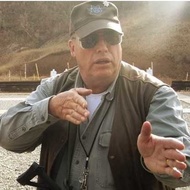30 Apr 13
At our ILEETA Conference in Wheeling, IL two weeks ago, my friend and colleague, Ron Borsch, coined a new term when describing indecisive police responses to critical incidents, particularly those involving hostages and “active murderers,” he referred to it as “tactical loitering.”
The issue is this: We all know, from bitter experience, that hostage situations rarely turn out well. In most cases, no matter how they are handled, they end in disaster. Knowing this all to well, many of those in a position to take charge at the scene, don’t!
We saw this phenomenon play out, in spades, during the Beslan school/hostage drama in 2004 in Ossetia. There was surely no shortage of elite, tactical teams at the scene, but there was a critical shortage of take-charge leadership. So, tactical teams arrived at the scene, but did little more than aimlessly mill about for three days, because no one wanted to be in charge.
Over here, many police departments brag about their fast “response time.” What they don’t mention is the tendency to do nothing after they arrive.
What Ron, and others on the panel, emphasized was that someone, someone actually at the scene, needs to step up to the plate, without delay, and start making decisions. In many cases, rank becomes irrelevant. The officer in the best position to see what is needed is the one who needs to step forward and take charge, at least initially.
When such dynamic personal initiative is not encouraged within a department, officers arriving at the scene of a critical incident will predictably loiter about ineffectively until some supervisor (who is invariably tied-up in traffic) finally arrives, unfailingly too late!
In fire-fighting technology, there is an expression: “The first five minutes are more important than the next five hours” In critical incidents, even when we know it will likely end in disaster, dynamic leadership is the critical commodity. The “risk-averse,” who won’t step-up to the plate, no matter his rank, needs to do something else for a living!
“Good tactics” doesn’t mean “taking no risk.” “Good tactics” means “taking the best risk,” at the critical moment!
The ever-fearful are fond of saying “… don’t be a hero.” That rubbish surely does not represent my heritage! We need to be heroes, and we need to train heroes. Others need not apply!
“… a general cannot escape battle when his adversary intends to engage in it no matter what. So, orders ‘not to fight’ amount to saying: ‘fight the battle only when the enemy wishes to, not when you do.’ When he waits, he certainly loses; but when he makes the bold attempt, he may yet conquer!”
Machiavelli, Discourses, 3.10,11
/John


